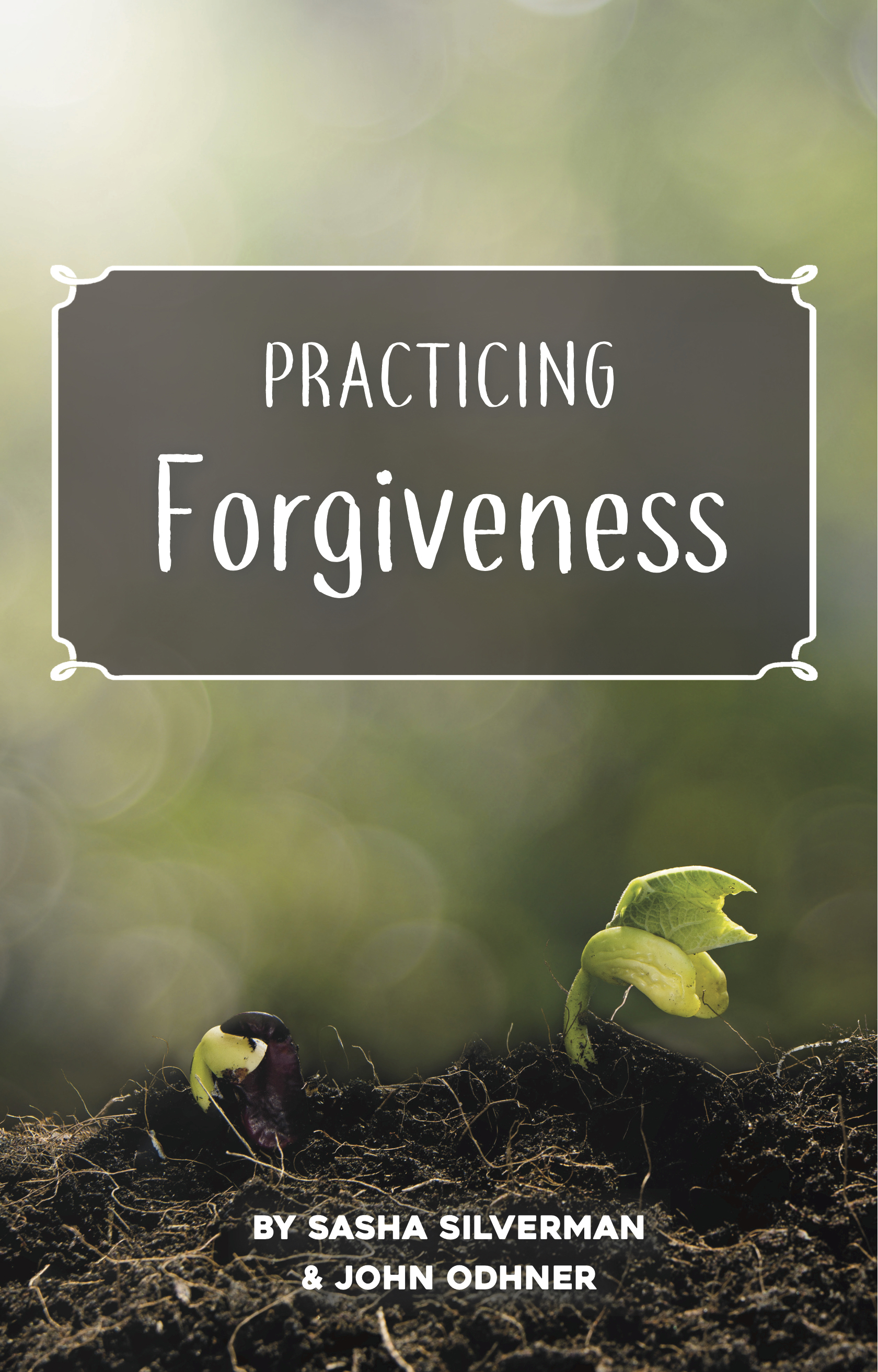Authentic forgiveness stems from a deep faith that we are enough, that love is abundant, and that even though we have been wronged, we don’t have to spend our emotional energy trying to have that “debt” paid back to us. This kind of trust doesn’t come easily! It takes practice to train our minds to learn to let go of what’s not important, so we can make room for things that really matter. That’s what Practicing Forgiveness is here to offer – a place for people to come together and focus on ways to learn to accept, forgive and love each other.
Releasing our resentments toward others requires attention, prayer and often community support – three essential components of a small group program. Our goal with this year’s Journey Program involves bringing communities together around the common desire to learn to love and forgive one another. In order to do this, we have based this program on various stories Jesus tells about forgiveness, pairing each Bible story with a powerful story of forgiveness from the Forgiveness Project . Each of the five-weeks of the program has an opportunity to gather and discuss the topic with others in a small group. There are also daily readings of the Practicing Forgiveness workbook, participants are encouraged to practice some element of forgiveness, and see its application to their lives, in addition to various offerings of meditations, activities, and sermons.
Focus on and explore ways to learn to accept, forgive and love each other. This is an opportunity to practice love, even when it’s not easy.
You can start your own exploration at any time, with our free 5 week email program, with readings, insights, and opportunities for reflection. Or start your own small group in your church or community, using the Practicing Forgiveness workbook and related resources.
The program is free. Work on your spiritual growth with daily emails (for the length of the program) with readings, insights, and opportunities for reflection.
Weekly topics
 Each of the five weeks explores a communication task drawn from the parable:
Each of the five weeks explores a communication task drawn from the parable:
- Week 1: Why Forgive? Forgiveness, as a form of surrender and release, expands our capacity to love.
- Week 2: Forgiving Others True forgiveness blends both mercy and justice.
- Week 3: Being Forgiven Forgiveness means finding the courage to see our own errors – not just those of others.
- Week 4: Self-Forgiveness Forgiveness turns away the false messages of harsh self-judgment.
- Week 5: Transformation Forgiveness transforms us from victim to survivor, from helpless to empowered.
- Week 6: Wrap up and Celebration Peace and joy comes when we embrace opportunities to forgive.
Explore these topics during the program
Week 1: Why Forgive?
We cannot love fully and freely if we are holding onto either resentments toward others or deep, unresolved shame. Forgiveness brings perspective and compassion, expanding our capacity to love, both as one who forgives and as one who is forgiven. Our story is the woman seeking forgiveness who washed Jesus’ feet at the house of Simon the Pharisee (Luke 7:36-50). “Her sins, which are many, are forgiven, for she loved much.”
Week 2: Forgiving Others
Misconceptions abound about forgiveness: that it is weak, that it lets others off the hook, that it promotes injustice, or that it’s a “once and done” effort. This week explores what Jesus says about true forgiveness. Our story is the parable of the unforgiving servant (Matthew 18:15-35) as well as its preceding instructions from Jesus: “Tell your brother his wrong” and “Forgive 70 times 7.”
Week 3: Being Forgiven
We all hurt others at some point, whether intentionally or not. By acknowledging our mistakes and making amends to those we’ve hurt, we can experience a humbling process –one that helps us become more forgiving of others. Our story is the Parable of the Prodigal Son (Luke 15:11-32). “Father, I have sinned against heaven and against you.”
Week 4: Self-Forgiveness
Thoughts that we are not good enough, not worthy not lovable – these “stones” are falsities evil spirits throw at us. God, however, is present even in these times of terrible self-doubt reminding us that none of us is perfect: “Let the person who has never sinned throw the first stone.” The week’s story is about the Woman About To Be Attacked With Stones (John 8:1-10).
Week 5: Transformation
Forgiveness can transform the often crippling emotions of shame or anger into motivation for spiritual progress. By following God’s command to stand up and walk – to move forward – , the pain of our past may transform into compassionate, positive action. The story is about the Lord healing a paralyzed man (Mark 2:1-12). “Take up your bed and walk.”
Week 6: Wrap up and Celebration
Peace and joy comes when we embrace opportunities to forgive. We reflect on our experiences during the last five weeks, and make goals looking forward.
Small groups
A small group is a gathering of people who commit to meet on a weekly basis to explore their faith and support each other in applying that faith to life. Small groups usually include prayer, a time for checking in, and discussions or related activities.
Start your own small group! It’s easy with the step-by-step Practicing Forgiveness workbook, which includes instructions for small group leaders and participants alike.
Are you a pastor, program director, or small group leader? Visit our New Church Journey leaders page for leader information and resources.
Questions? Contact us by email at [email protected].
This website contains a wealth of information about the New Church, and a practical, spiritual path to happiness. Read more about the beliefs of the New Church, as well as more about Emanuel Swedenborg.

